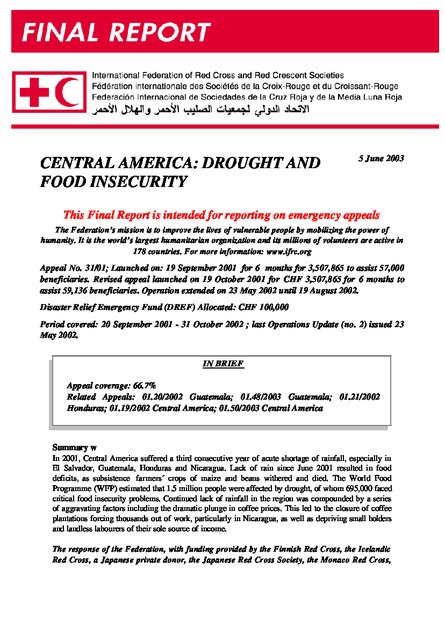
In 2001, Central America suffered a third consecutive year of acute shortage of rainfall, especially in El Salvador, Guatemala, Honduras and Nicaragua. Lack of rain since June 2001 resulted in food deficits, as subsistence farmers' crops of maize and beans withered and died. The World Food Programme (WFP) estimated that 1.5 million people were affected by drought, of whom 695,000 faced critical food insecurity problems. Continued lack of rainfall in the region was compounded by a series of aggravating factors including the dramatic plunge in coffee prices. This led to the closure of coffee plantations forcing thousands out of work, particularly in Nicaragua, as well as depriving small holders and landless labourers of their sole source of income.
The response of the Federation, with funding provided by the Finnish Red Cross, the Icelandic Red Cross, a Japanese private donor, the Japanese Red Cross Society, the Monaco Red Cross, the Norwegian government/Red Cross and the Swedish government/Red Cross was complemented by the response of several PNS and bilateral contributions from: the American Red Cross, the British Red Cross, the German government, the Netherlands Red Cross, the Spanish Red Cross, the Swiss government and the World Food Programme, working towards the objectives outlined in the Federation appeal.